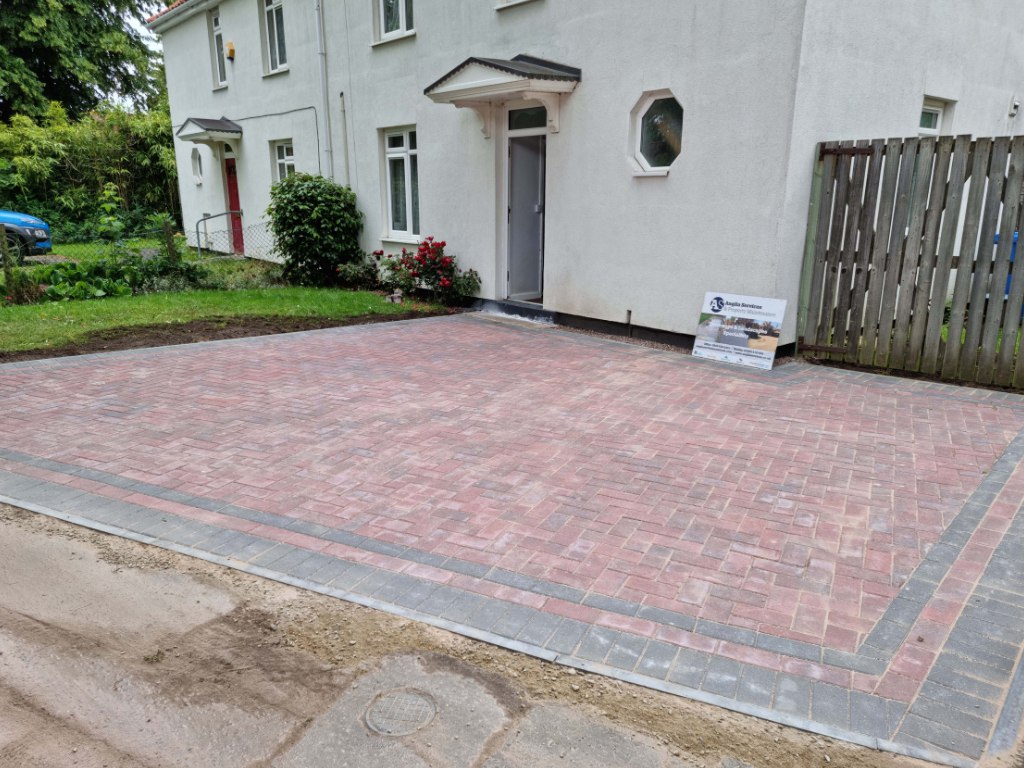Resin-Bound or Resin-Bonded: What’s the Difference?
When choosing a surface for your driveway or patio, resin has quickly become a popular and attractive option. However, homeowners often face confusion when deciding between resin-bound and resin-bonded systems. Though the terms sound similar, the installation methods, performance, and appearance vary significantly.
At Shortstown Driveways & Patios, we’re committed to helping you make informed decisions for your home in Shortstown. Below, we break down the key differences between resin-bound and resin-bonded surfaces so you can choose the most suitable option for your needs.
What Is a Resin-Bound Surface?
Resin-bound surfacing involves mixing aggregate stones with a clear UV-stable resin before trowelling the mixture onto the surface. This creates a smooth, seamless finish that is both visually appealing and highly practical.
Key benefits of resin-bound surfaces:
- Permeable: Allows water to drain through, helping to reduce standing water and meeting Sustainable Urban Drainage System (SuDS) requirements.
- Smooth finish: Ideal for wheelchair and pushchair users.
- Highly durable: Resistant to cracking and surface wear with proper installation.
- Customisable appearance: Available in a range of colours and stone types to suit your property’s aesthetics.
Because of its permeability and neat finish, resin-bound is the preferred choice for residential driveways, patios, and pathways where both form and function matter.
What Is a Resin-Bonded Surface?
In contrast, a resin-bonded surface involves applying a layer of resin directly onto a prepared surface and then scattering loose aggregate over the top. The result mimics the appearance of loose gravel but is semi-fixed in place.
Key features of resin-bonded systems:
- Non-permeable: Water cannot drain through, which may lead to puddling unless installed with drainage in mind.
- Textured surface: Offers high slip resistance but may not be as comfortable underfoot.
- Faster installation: Often quicker to install, making it more cost-effective for certain projects.
- Traditional appearance: Ideal for period properties or rural settings where a loose stone look is desired.
While resin-bonded surfaces can look great initially, they tend to wear more quickly under heavy use and may shed loose stones over time.
Which Is Better for Your Driveway?
The right choice depends on how you plan to use the area, the existing groundwork, and your priorities in terms of maintenance, budget, and aesthetics.
Choose resin-bound if you want:
- A smooth, modern finish with long-term performance
- A permeable surface that handles rainwater effectively
- A low-maintenance driveway with no loose stones
Choose resin-bonded if you prefer:
- A rustic or traditional appearance
- A quicker, more affordable installation
- High grip and a rougher texture underfoot
At Shortstown Driveways & Patios, we help homeowners across Shortstown choose the right system for their property, ensuring a professional installation that adds both value and kerb appeal.
Conclusion
While resin-bound and resin-bonded surfaces may sound similar, the differences in how they are installed and how they perform are substantial. Understanding these distinctions is essential to making the right investment for your home.
If you’re still unsure which option best suits your driveway or patio in Shortstown, the team at Shortstown Driveways & Patios is here to help. Get in touch with us today for expert advice, tailored solutions, and a no-obligation quote for your next project.
Call us on: 01234 395 493
Click here to find out more about Shortstown Driveways & Patios
Click here to complete our contact form and see how we can help with your driveway needs.

